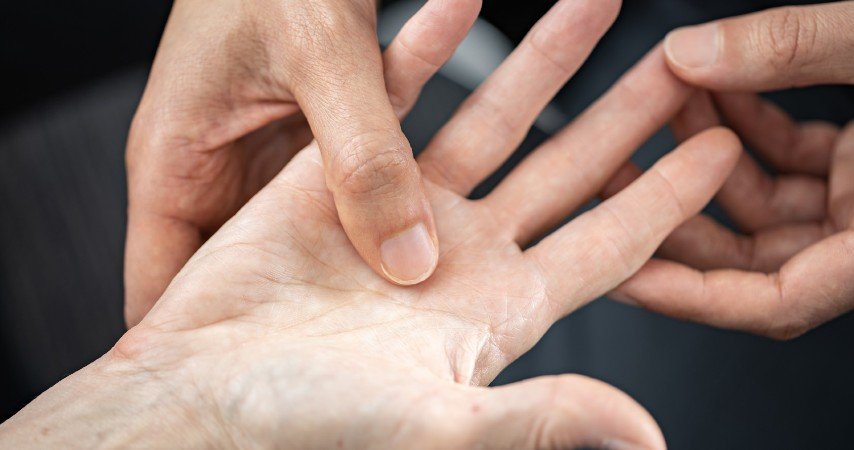
Dupuytren’s disease is a disorder of the fascia (deep lining layer) of the palm that results in the formation of nodules and cords leading to contractures of the fingers.
It is a disorder that occurs due to genetic and environmental factors and frequently develops between the ages of 50-60. Over time the disease may progress leading to contractures and an inability to straighten the fingers impairing hand function.
Dupuytrens disease can usually be diagnosed based on clinical examination.
Treatment of Dupuytren’s disease depends on the severity of symptoms. Once finger contractures have developed and the hand cannot be placed flat on a table, surgery is indicated to restore hand function. In mild cases, the tight cords may be able to be released using a needle passed through the skin. In more severe cases, the tight cords may need to be excised through incisions in the palm.
A consultation with your plastic surgeon will enable personalisation of the procedure and care to your unique situation.
Surgery is usually performed as day surgery under either general anaesthetic or local anaesthetic and sedation. You will need to fast on the day of surgery, and organise a support person to take you home and be around to help in the first few days after surgery.
A post-operative appointment will be organised for you to see your plastic surgeon 1-2 weeks after surgery to check your wounds, remove sutures and provide advice to care for your hand as you recover. Generally you will not be able to drive for 2-3 weeks after surgery and will need between 2-4 weeks off work depending on your type of work (manual work vs office based work).
All operations have risks, though major complications are rare after Dupuytrens surgery. There is a small risk of concerns that may delay healing and require a little extra care (eg minor bleeding, infection, or over active or sensitive scars). Very rarely there is a risk of injury to the digital nerves which provide sensation to the fingers. Rarely there is a risk of recurrence of dupuytrens disease over many years.
These risks may vary depending on your specific situation and will be discussed with you at your consultation. Please feel reassured that your plastic surgeon will only recommend surgery if they feel that the benefit of the procedure substantially outweigh the risks.
If you have Dupuytren’s disease, the majority of the cost is rebatable through Medicare and standard private health insurance. This does require a referral from your family doctor.
After your consultation, a detailed quote will be provided to you including the surgeon fee, anaesthetic fee and hospital fee.
You can use this form to request a call back.
Please be aware that all surgical procedures require a consultation with our plastic surgeons to allow a thorough assessment and discussion of your specific needs.








Plastic Surgery Central
235 Greenhill Rd
Dulwich SA 5065